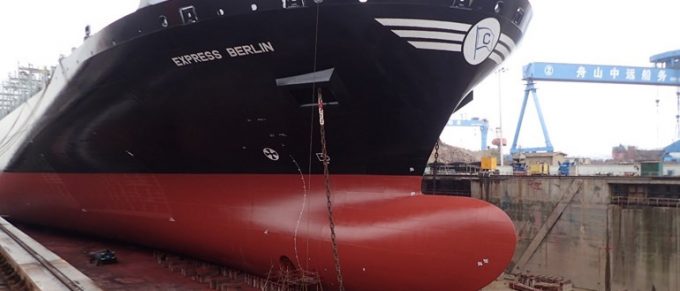Top box lines locked out of Santos bid as Maersk loses appeal
Maersk’s appeal to Brazil’s judiciary that it ought to be allowed to bid for port ...

The red-hot containership charter market has spawned an unusual sub-let deal between alliance rivals Yang Ming and Maersk.
Maersk is to take over the charter of the 10,114 teu Express Berlin from Yang Ming for a period of 12-14 months, paying the Taiwanese carrier an average ...


Comment on this article